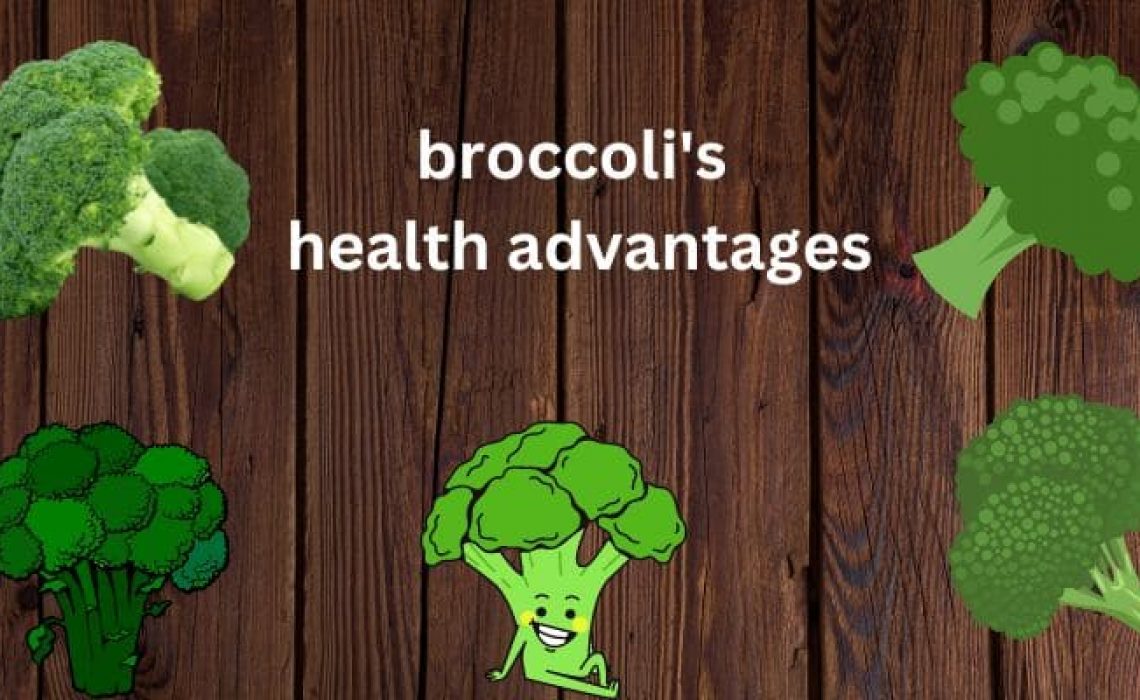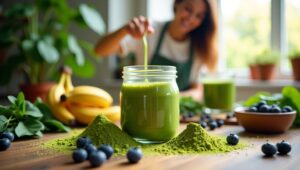The green vegetable known as broccoli has the appearance of a little plant. The species is classified under the genus Brassica oleracea.
Vegetables such as cabbage, Brussels sprouts, kale, and cauliflower are called the “vegetable crusade.” The vegetables that are eaten the most frequently are closely related to these four vegetables.
Table of Contents
Toggle1. Broccoli comes in three varieties
- Calabrese broccoli
- Sprouting broccoli
- Purple Culliflower
It is an excellent source of nutrition due to the high levels of vitamins, minerals, trace elements, and antioxidants that it contains.
2. Is broccoli the healthiest vegetable?
A preliminary study found that broccoli sprouts reduced levels of several inflammatory markers associated with heart disease.
Raw broccoli provides 77% of the daily value for vitamin K, 90% of the daily value for vitamin C, folate, manganese, and potassium, and 90% of the daily value for potassium in a serving size of 91 grammes (1 cup)
Broccoli contains a high concentration of sulfur-containing plant components known as glucosinolates, which turn into a phytochemical called sulforaphane through the process of myrosinase activity. And researchers have discovered that sulforaphane prevents the development of cancer in animals. It also improves heart health and digestion.
This essential herb is also beneficial for treating a variety of other conditions and is considered one of the healthiest vegetables.
3. Is Broccoli a superfood?
Broccoli is considered a superfood due to its following merits;
- Broccoli is rich in dietary fibre, vitamin C, K, iron and potassium.
- Broccoli is very low in calories and has 27 calories per serving
- A non-dairy source of calcium is broccoli.
- One cup of broccoli contains about 60 milligrams of calcium.
- Broccoli can be eaten raw or boiled.
- 1 cup of broccoli contains more vitamin C than an orange.
- Broccoli is easily available in supermarkets throughout the year.
- It’s in the freezer section.
4. Nutrition facts about broccoli
100 grammes of raw broccoli has 34 calories and gives you 107% of your daily value (DV) of vitamin C and 97% of your DV of vitamin K. Raw broccoli has a lot of B vitamins, a fair amount of manganese (10–19% DV), and a small number of other micronutrients (less than 10% DV). Raw broccoli is mostly water, has 7% carbs, 3% protein, and almost no fat. (Source USDA)
Nutrient |
Amount |
DIV% |
| Total Fat | 0.4 g | 0% |
| Cholesterol | 0 mg | 0% |
| Sodium | 33mg | 1% |
| Potassium | 316 mg | 9% |
| Total Carbohydrate | 7mg | 2% |
| Protein | 2.8 g | 5% |
6. Broccoli’s health advantages
Broccoli is a rich source of vitamins, minerals and antioxidants. Antioxidants help prevent the development of other diseases.
During biological processes such as metabolism, the body produces molecules called free radicals, which are added to environmental factors. Free radicals or reactive oxygen species are toxic when ingested in large amounts. It can damage cells and lead to cancer and other diseases.
Keeping the heart and arteries healthy
It is rich in fibre, potassium and antioxidants that keep the heart and blood vessels healthy. Potassium reduces the risk of high blood pressure by relaxing the blood vessels. It reduces the risk of many heart diseases. It should not be forgotten that 5% of a person’s daily potassium needs are met by this vegetable.
One of the cardiovascular diseases is affected which can lead to heart attack or stroke. And is found a pollution study conducted in 2018 ordered women who consumed a cruciferous vegetables-rich diet to develop a lower risk of atherosclerosis. It was suggested that antioxidants particularly sulforaphane may have helped in this reduced risk.
Consuming a good quality of fibre reduces the risk of CVD and lowers of levels of lipids (fat) in the blood. And broccoli provides a sufficient amount of fibre in our diet.
lowering the cancer risk
Cruciferous vegetables like broccoli are rich in a number of antioxidants. And antioxidants may work in preventing the type of cell damage that leads to cancers.
One of these cancer-preventing antioxidants is sulforaphane which is present in these vegetables.
It also contains a compound called indole 3-carbinol which may have powerful antitumor properties.
There is a cancer treatment known as “green chemoprevention” in which people use the whole plant or its extracts to prevent cancer. Scientists recommended that cruciferous vegetables may help an important role in it.
Strengthening bone health
Calcium and collagen work together to keep bones strong. More than 99% of the calcium in the body is present in bones and teeth. The body also needs vitamin C to produce collagen. Both are found in broccoli.
Some researchers say vitamin K plays an important role in the formation of cartilage tissue, but some say it may help prevent or treat osteoporosis. People who are deficient in vitamin K can have many problems with bone formation. Getting enough vitamin K in your diet can help keep your bones healthy.
We are According to the Department of Agriculture, one cup of broccoli weighs about 76 grams (g), which provides 3–3.5% of the daily calcium and 45–54% of the daily value of vitamin A, and meets 64–86% of the daily need for vitamin K, depending on age and gender
Improving skin health
Vitamin C helps in the production of collagen in the body, which is an important aid to the body’s cells and tissues, including the skin. As an antioxidant, vitamin C can prevent skin damage, including age-related wrinkles.
Many Studies have shown that vitamin C plays an important role in preventing or treating skin conditions such as inflammation and ringworm.
lowering inflammation
Several research studies have shown that the antioxidant properties of sulforaphane present in broccoli help reduce inflammation.
Immune health improvement
Vitamin C is a powerful antioxidant. (vitamin C: source)
It supports the immune system and protects against cancer, cardiovascular disease (CVD), cataracts and anemia. In supplement form, it helps reduce flu symptoms and shorten the duration of the flu.
Digestive help
Dietary fibre provides adequate nutrition. Prevent constipation Support digestive health and reduce the risk of colon cancer
A 2015 study found that people who ate more fibre had a lower risk of colon cancer than those who ate less.
One cup of broccoli provides 5.4-7.1% of your daily fibre.
Diabetes prevention
According to a 2017 study, eating broccoli can help control blood sugar levels in people with type 2 diabetes. That’s because sulforaphane is present.
Additionally, a 2018 study found that people who eat a high-fibre diet are less likely to develop type 2 diabetes than people who eat a low-fibre diet. Fibre can also help lower blood sugar in diabetics.










1 thought on “Broccoli Health Benefits | Benefits Of Broccoli”
Pingback: 5 Seasonal Vegetables - Must include in your diet